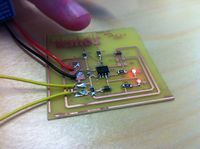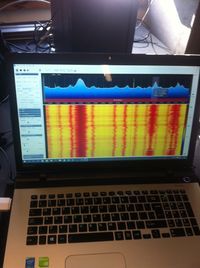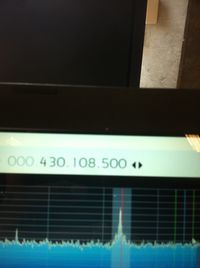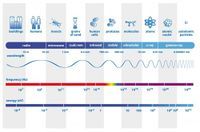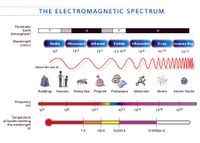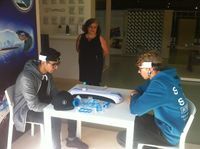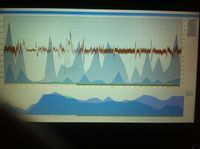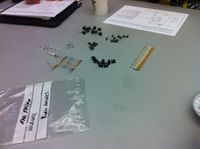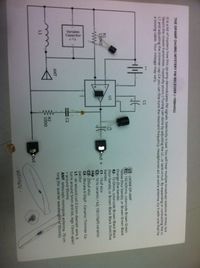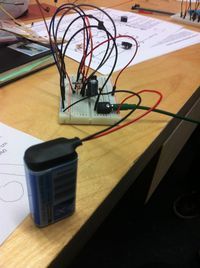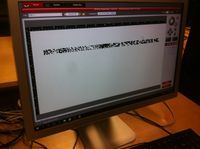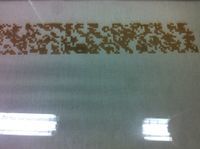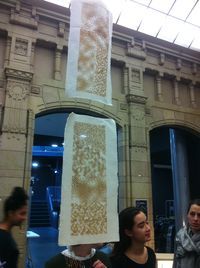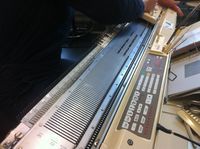Difference between revisions of "User:AlexLaman"
| Line 109: | Line 109: | ||
| − | [[File:Bag of chips.JPG|200px]] [[File:Make a survice.JPG|200px]] [[File:Transmitter.JPG|200px]] | + | [[File:Bag of chips.JPG|200px]] [[File:Make a survice.JPG|200px]] [[File:Transmitter.JPG|200px]] |
| Line 117: | Line 117: | ||
| − | [[File:Wave of | + | [[File:Wave of wave.JPG|200px]] [[File:Wave of woven.JPG|200px]] [[File:Wovenwave.JPG|200px]] |
Revision as of 15:11, 31 October 2016
Hallo,
My name is Alex Laman, 0901319 Illlu 2B
Good Morning.
Here is somthing.
Introduction:
Unravel the Code V
Radio is one of the major technological infrastructures of our contemporary life. One of the fundamental building blocks that a lot of the technologies we use depend on. When you read the word 'radio' however, you might think of commercial FM stations, pop music, talk shows and wonder what's so relevant and fundamental about that. We've got the internet right? Radio however is much bigger than just commercial broadcast radio. At any given moment the air is filled signals ranging from cell phone packets, the walkie-talkie chatter of bus drivers, airplane tracking signals, bluetooth mouse movements, satellites broadcasting down to earth, the hum of electrical devices, bleeping wireless car keys, television, pagers, navigational beacons and much much more. And aside from that list there are all those technologies which are part of 'the internet', such as Wi-Fi, 3G, 4G, microwave towers etc which are also radio based. In short, any electrical device which doesn't work via wires (hence: wireless) works via radio. However, radio itself is a natural phenomenon, deeply physical and older than man kind. The strongest broadcasters are the stars.
For Unravel The Code 2k16 we will take this expanded understanding of radio as our topic and approach it as Digital Craftsmen.We will get an insight of how various radio based systems work, what they do, what they send, who they send to and why. With that knowledge we will design objects that relate to this electromagnetic spectrum. We will dream up devices that make these radio systems more present or visible, opening them up to critical inquire, poetical intervention, aesthetic experience etc.
During Q9 students will unravel the mysteries of radio on a week by week basis. Q9 is centered around a series of workshops. During these workshops we will approach a radio system technically, culturally and poetically to understand and learn to work practically with them. For Q10 students will put this experience to use in order to design poetic interventions, recount obscure histories or meticulously craft objects in the grey zone between crafts and the electromagnetic spectrum.
Week 1:
Theory:
( 2nd year project).first workshop with radio
the workshops in week one was about Analog Sensing Devices.
We made this little device that works on radio. a kopper wire with a LED that blinks when u device is datecting radio.
Week 2:
Theory:
My First expirience with a dongel,
We used the dongel to tap radio waves out of the sky and record them.
On this foto u see the channel I record the conversations from.
Week 3:
Research.
I searched for a spectrum of different radio waves.
To help me to understand more about the different forms of radio.
Inspiration:
5 Types Of Brain Waves Frequencies: Gamma, Beta, Alpha, Theta, Delta
It is important to know that all humans display five different types of electrical patterns or “brain waves” across the cortex. The brain waves can be observed with an EEG (or an “electroencephalograph”) – a tool that allows researchers to note brain wave patterns. Each brain wave has a purpose and helps serve us in optimal mental functioning.
Our brain’s ability to become flexible and/or transition through various brain wave frequencies plays a large role in how successful we are at managing stress, focusing on tasks, and getting a good night’s sleep. If one of the five types of brain waves is either overproduced and/or under produced in our brain, it can cause problems. For this reason, it is important to understand that there is no single brain wave that is “better” or more “optimal” than the others.
Each serves a purpose to help us cope with various situations – whether it is to help us process and learn new information or help us calm down after a long stressful day. The five brain waves in order of highest frequency to lowest are as follows: gamma, beta, alpha, theta, and delta.
New Instituut Rotterdam. (brain wave game) game you play with your mind/focus.
Experiment:
EEG scan made with Neurosky's Mindwave Mobile. (software NeuroVieuw)
Week 4:
Concept:
I want to make a game you can play with your brain/mind.
Mind Game is a game to train your brain.
You have to learn to Focus on Different elements of your brain.
This game helps you to focus on simple movements like forwards,
Backwards, up, down and Sideways.
Every move is made with the headset. play without a controller. play and free your mind.
Workshops:
